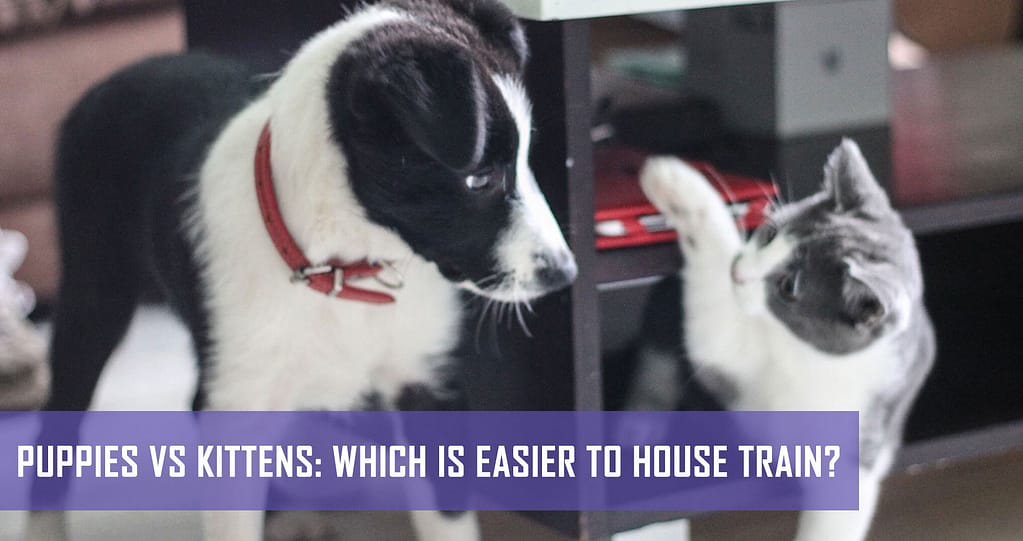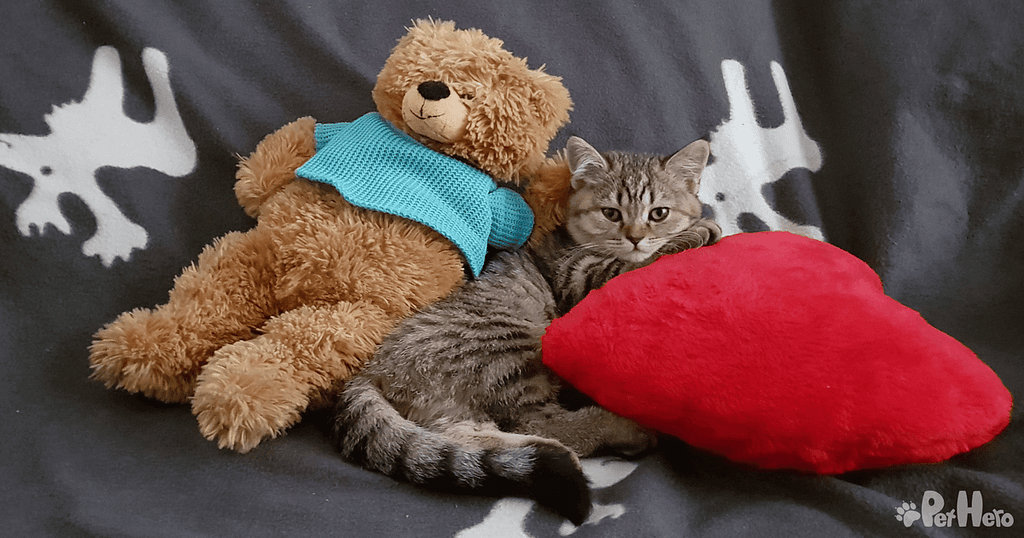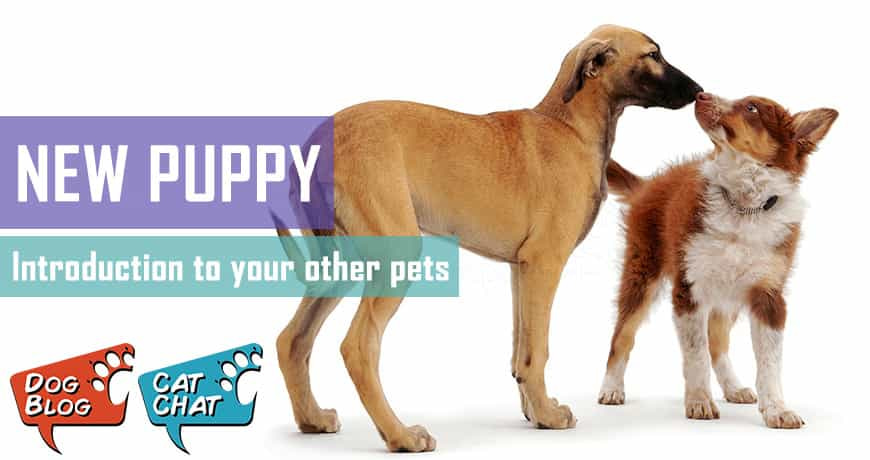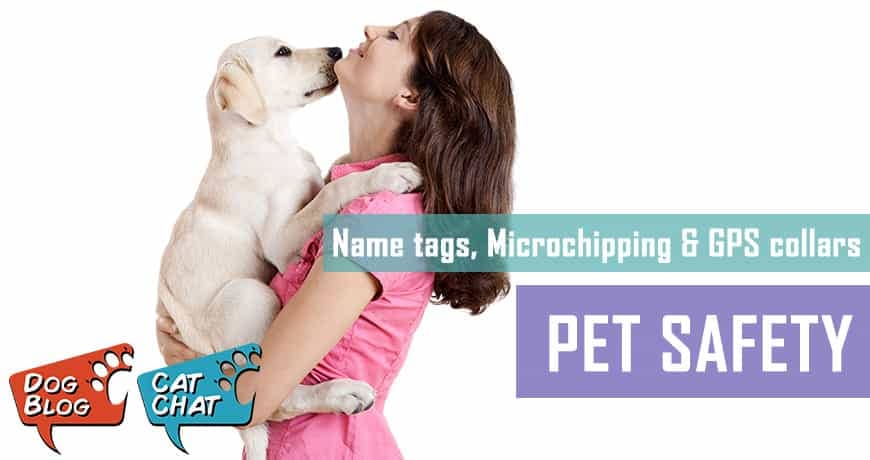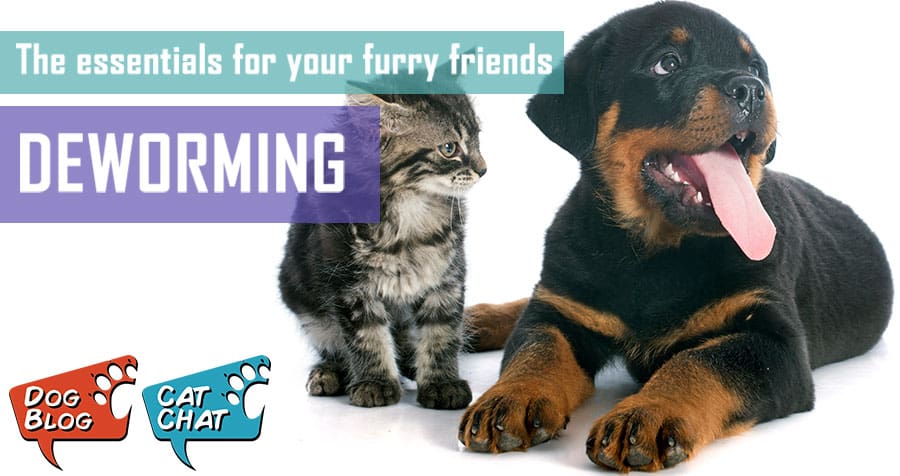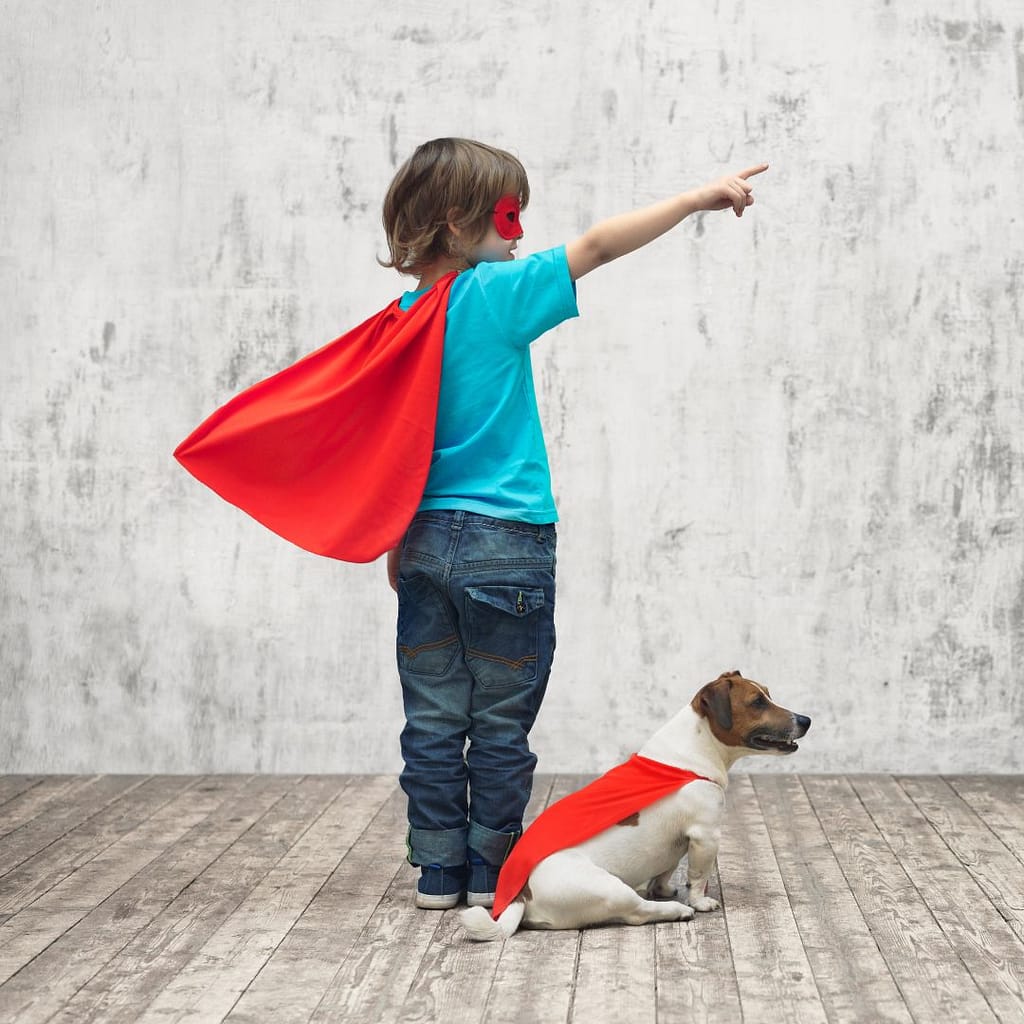[Sponsored post] House training your new kitten or puppy can be a simple process that your clever pet seems to just naturally ‘get’, or it can be a little more complex. Perhaps you brought home a tiny fur-covered diva who is going to create an uphill house training battle until the day she acts like she’s been ‘going’ correctly all this time. Either way, we’ve got the 411 on house training young pets and why some pets are easier to house train than others.
Is it easier to house train a cat or a dog?
In a previous series on house training young pets, we specifically covered the steps it takes to litter train a new kitten and how to house train a puppy. For both kittens and puppies, you need to let them know where to do their business. In general, kittens are easier to house train, but before the cat lovers think they’ve ‘won’, there’s a caveat:
Puppy house training
- Puppies need to be shown that inside is ‘bad’ and outside is ‘good’
- Puppies become receptive to house training at around eight weeks old
- May take up to six months before house training is complete/successful
- Once routine is in place, it’s easy to manage your dog’s toileting habits
Kitten house training
- Kittens naturally begin to scratch in dirt – instinctual
- Kittens’ toilet instincts kick in at just a few weeks old
- Need to be shown where the litter tray is located – may need a few reminders
- Cats can take a long time before they’re okay with their toilet habits – read more here
While kittens’ instincts can be harnessed to get a jump-start with house training, consistency doesn’t necessarily guarantee success. Cats might end up deciding they’re not happy with the litter box placement, the type of litter or even the type/size of litter box. It will then become a process of elimination (if you’ll pardon the terrible pun) to figure out how to ensure your cat has a comfortable and effective toileting experience.
Do puppy pads help with puppy house training?
During the process of house training, your puppy will enthusiastically want to please you, but because her little brain is still growing and developing, you can’t expect her to get it right straight away. And besides, in winter, she might not be all that excited about going outside in the cold and the dark… when it’s much easier to just relieve herself indoors! To curb these bad habits in the meantime and to train her to ‘go’ where you want her to go, M-Pets Easy Fix Puppy Training Pads will give your puppy a good place to toilet while not ruining carpets, wooden floors, or even furniture. (Training pads are also ideal for older dogs who have incontinence issues, or dogs who are recovering from surgery.)
Which cat litter helps Help with kitten house potty training?
Some kittens may be extremely fussy about the type of cat litter that’s in their litter box, while others will just go when they need to go. Why not give M-Pets Bamboo Cat Litter a try? It checks all the necessary boxes: it’s organic, biodegradable, absorbent and leaves a beautiful fresh scent – ideal for both you and your cat.
When your kitten has successfully used the litter box, get back to the real business of play, with the M-Pets Natura Mouse Wand. Her natural kitty hunter instincts will love it!
In conclusion
Kittens might be easier to house train initially, but cats’ fussy nature might require you to retrain their potty habits later on. Generally when dogs are successfully house trained, it’s for life, unless they suffer from anxiety or medical issues. Either way, all pets deserve tons of love, effective training and proper care. Thank you for being their hero!
Subscribe to the Pet Hero newsletter and get more helpful advice delivered straight to your inbox. You’ll also be the first to catch our promotions, sales and competitions, so don’t miss out!

